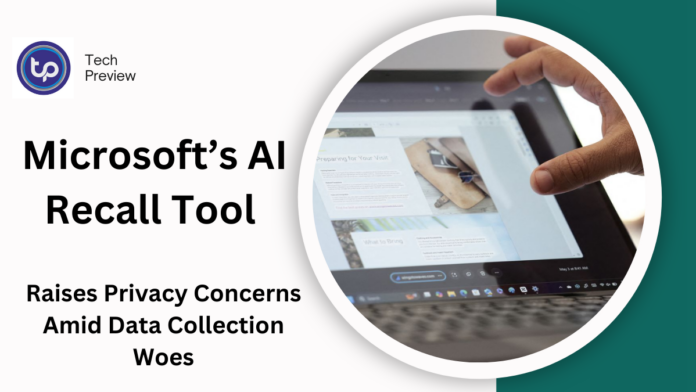This week in cybersecurity news, Microsoft has been under fire for its AI-powered “recall” tool, which is still collecting sensitive user data despite previous concerns.
While Microsoft claims the tool is designed to improve user experience, experts are warning that it could compromise user privacy.
In addition to this alarming development, the United States has indicted several North Koreans involved in a fake IT worker scheme, while the file-sharing company Cleo is urging customers to patch a critical vulnerability amid ongoing cyberattacks.
Here’s a roundup of the biggest security stories making headlines this week.
Microsoft’s AI Recall Tool Still Collecting Sensitive Data
Background on the Recall Tool
Microsoft’s AI-powered tool was designed to help users recall emails and messages across Microsoft 365 applications. However, concerns have emerged over its data collection practices.
The tool, which aims to enhance the user experience by predicting what information users may need, has been criticized for potentially exposing sensitive personal and business data without proper consent.
Why It’s a Problem
The recall tool’s AI algorithm uses user data to improve its performance, but this often means collecting and storing sensitive information.
MUST READ: Why Google’s U-Turn on Third-Party Cookies Is a Big Deal for Online Privacy
Even though Microsoft has implemented privacy safeguards, security experts argue that the tool’s data collection processes could still pose significant risks, especially when it comes to enterprise data that may not be adequately protected.
Implications for Privacy and Security
The concerns regarding the recall tool highlight the ongoing tensions between improving AI capabilities and protecting user privacy.
While users may benefit from the convenience and speed of AI-driven tools, they could also find themselves inadvertently compromising sensitive information, which could be exploited in a breach or by malicious actors.
Microsoft has stated that it is continuously working on improving user privacy settings for its tools, but the company may face increased scrutiny as the privacy implications of AI-powered features become more pronounced.
Users and businesses are being urged to carefully monitor the permissions granted to AI tools to ensure that sensitive data isn’t unintentionally exposed.
North Koreans Indicted in Fake IT Worker Scheme
What Happened?
In a major development this week, the United States Department of Justice announced the indictment of several North Korean individuals involved in a global scheme designed to exploit fake IT worker positions.
These workers, posing as legitimate IT professionals, scammed companies by offering fraudulent services and stealing valuable data.
How the Scheme Operated
The scheme involved North Korean hackers posing as legitimate IT workers to gain access to various businesses’ sensitive systems and networks. Through these deceptive tactics, they were able to steal trade secrets, personally identifiable information, and sensitive data, all while diverting financial resources to the North Korean regime.
Legal and Diplomatic Consequences
This indictment is the latest in a series of actions taken by the U.S. government to combat North Korean cybercrime. It also highlights the growing threat of state-sponsored cybercriminal activities, where nation-states engage in hacking for political and financial gain. The case also underscores the importance of global cooperation in fighting cybercrime and protecting sensitive data from foreign adversaries.
Cleo File-Sharing Firm Warns Customers to Patch Vulnerability Amid Active Attacks
The Vulnerability
File-sharing firm Cleo has issued a critical warning to its customers to patch a severe vulnerability that is currently being actively exploited in cyberattacks. The vulnerability exists in Cleo’s file transfer protocol software, which is widely used by businesses to securely share data across networks.
Current Cyberattacks
Reports indicate that the vulnerability is being exploited by hackers in real-time, leading to data breaches, potential system compromises, and financial losses. While Cleo has released a patch to fix the vulnerability, the company urged customers to implement it immediately to avoid falling victim to these ongoing attacks.
Why This Is Critical
The vulnerability exposes organizations to significant risks, particularly those handling sensitive customer or business data. Attackers exploiting this flaw could access critical systems, steal intellectual property, or disrupt operations, making it crucial for businesses to act quickly and update their systems.
Additional Headlines in Security News:
- New Android Zero-Day Exploit Found: A new zero-day vulnerability affecting Android devices has been discovered, enabling attackers to take control of smartphones without the user’s knowledge.
- Ransomware Group Targeting Healthcare Organizations: A ransomware group has specifically targeted healthcare organizations, encrypting critical systems and demanding large sums of money for decryption keys.
- Europe Strengthens Data Privacy Regulations: The European Union is considering tougher regulations to protect user data, including stricter penalties for breaches and non-compliance.
Conclusion
This week’s security news serves as a stark reminder of the ever-growing threats to data security and privacy. Whether it’s a global scheme targeting IT workers, critical vulnerabilities in widely used software, or the unchecked data collection by AI tools, individuals and organizations must remain vigilant in protecting their digital assets. As cyber threats become more sophisticated, proactive measures and quick responses to security warnings are critical to maintaining privacy and safeguarding sensitive information.
People May Ask
What is Microsoft’s AI recall tool, and why is it concerning?
Microsoft’s AI recall tool is designed to assist users by predicting and recalling emails and messages. However, it collects large amounts of user data to improve its accuracy, which raises concerns about potential privacy violations.
What is the fake IT worker scheme involving North Koreans?
North Korean hackers were indicted for running a scheme where they posed as fake IT workers to infiltrate businesses and steal sensitive data, ultimately funding North Korea’s operations.
What should Cleo customers do to avoid security risks?
Cleo customers are advised to immediately patch a critical vulnerability in their file-sharing software to protect against active cyberattacks exploiting this flaw.
Why are AI-powered tools a privacy concern?
AI tools, like Microsoft’s recall tool, often require the collection of large amounts of personal or business data to function effectively, raising the risk that sensitive information could be exposed or misused.
What is the potential impact of the North Korean fake IT worker scheme?
This scheme could have wide-ranging consequences for businesses that were targeted, including data theft, financial loss, and potential threats to national security, given the state-sponsored nature of the cyberattacks.
Click here to learn more.








